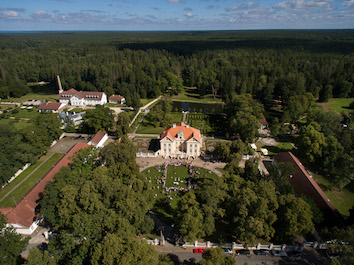Heritage and Rights training course and seminar May 1.-6. Tallinn and Lahemaa, Estonia
The course and seminars “Heritage and Rights”, May 1-6 in Tallinn and Lahemaa National Park are organised by ICOMOS Estonia in cooperation with the Environmental Board and the National Heritage Board, the Estonian Academy of Arts and the University of Tartu, the Estonian Institute of Human Rights, Tallinn University, the international ICOMOS and the Norwegian Center for Human Rights at the University of Oslo. The training focuses on cooperation between state, community and individual in the governance and management of heritage landscapes to empower communities, and the sustainable development goals. The training is a combination of academic and public lectures, meetings with local communities and experts, site visits and targeted workshops. The training and seminars bring together community, legal and heritage experts from around the world – Estonia, Latvia, Norway, Sweden, Ireland, Switzerland, Argentina and Russia. The training enables the communication between different relevant authorities, experts, students and local communities. How to implement human rights-based approaches to cultural heritage protection to balance the rights and responsibilities of the state, owners and communities will be discussed.
Lectures can be viewed via this link https://youtu.be/LWsydF8vJVA.
“Heritage and Rights” programme:
Wednesday 1st of May Meetings with local communities of Tallinn 16 Welcome session. Presentation of programme Participants present themselves. LIVESTREAMED!!!
Thursday 2nd of May„OUR COMMON DIGNITY“ open seminar “Community Rights and Heritage”. Theoretical questions of Community-Based Heritage protection and Rights-based approaches. In Estonian Academy of Arts main building.
Moderator: Dr Riin Alatalu, ICOMOS, Estonian Academy of Arts
9.00 Welcome words Mart Kalm, Academician, Rector and Professor of Estonian Academy of Arts Lauri Mälksoo, Academician, Professor of International Law, University of Tartu
9.30 – 10.45 What are human rights? The International Human Rights System. Dr Stener Ekern, Oslo University, Norwegian Centre of Human Rights
11.00 – 12.00 Rights-based approaches in Heritage protection. Community as rightsholder. Dr Peter Bille Larsen. Geneva University, Switzerland
12.00 – 13.00 Cultural heritage – tensions between individual and collective rights. Dr Aleksei Kelli, Ave Paulus, Tartu University, Estonia
14.00-14.30 Landscape protection- Heritage protection? Dr Helen Sooväli Sepping, Tallinn University
14.30-15.15 Ethics, communication and culture – Justo Vos Programme. Dr Daniel Scarfo, Ministry of Justice and Human Rights, Argentina
15.15-16.00 Rights of indigenous peoples and communities. Oliver Loode, Uralic Centre for Indigenous People, Institute of Human Rights, Estonia
16.15-18.00 Round-table: Challenges and opportunities in linking Heritage and Rights Night walking tour in Tallinn
Friday 3rd of May Workshop-training in Tallinn Academy of Arts. Stener Ekern, Peter Bille Larsen et al
9.00-10.30 What is culture? Group formation and group rights
11.00-12.30 Human Rights-based planning (HRBA)
13.30- 16.00 Human Rights-based planning (HRBA)
19.00 Arrival to Viinistu. Dinner
Saturday 4th of May Workshop-training continues in Lahemaa National Park, Viinistu Art and Conference Centre. Stener Ekern, Peter Bille Larsen etc
10.00-13.00 Human Rights-based planning (HRBA)
14.00-18.00 Applying theory to the cases Evening programme Sunday 5th of May.
Public seminar: “Heritage and rights – empowerment of local communities” Lahemaa National Park, Palmse manor complex. Community-based heritage protection. Heritage communities, rights and values. 10.00 Opening words Riho Kuppart, Director General of the Environmental Board of Estonia Siim Raie, Director General of the Heritage Board of Estonia
10.20 – 10.45 Partnership between Heritage Board and Communities. Siim Raie, Heritage Board of Estonia.
10.45-11.15 Communities safeguarding the Heritage of Lahemaa NP. Ave Paulus, Marti Hääl. Lahemaa National Park Cooperation Council.
11.15-11.30 Coffee break
11.30-12.00 Community Rights and World Heritage. Dr Bénédicte Selfslagh, ICOMOS Belgium
12.00-12.30 Communities initiatives in Ireland. Dr Grainney Shaffrey, ICOMOS Ireland
12.30-13.00 Rights-Based approach in Heritage Protection – Some Remarks on the Course in Estonia. Dr Stener Ekern, Dr Peter Bille Larsen.
13.00-14.00 lunch 13.30-16.30 Round-table: Guidelines for Community-based Heritage Management. Participants Dr Riin Alatalu, Dr Aleksei Kelli, Dr Deirdre McDermott, Dr Bénédicte Selfslagh, Dr Stener Ekern, Dr Peter Bille Larsen, Siim Raie, Ave Paulus, Marti Hääl etc Summing up and closure
Monday 6th of May Meetings with Lahemaa heritage communities Description of training Course “Heritage and Rights”
During the course we analyse and explore the ways and approaches how to: Understand international human rights standards and what they mean for the heritage field How human rights have been addressed in international heritage policy and practice How heritage has been addressed in the human rights field Adapt a rights-based approach to the particular heritage area and field. Advantages and challenges Requirements Explore the range of tools and skills necessary such as to build solid relationships with communities and people in their work. To embrace the principle of free, prior and informed consent of communities of origin before adopting measures related to their specific cultural heritage Offer all possible assistance so that communities and rights holders are consulted and invited to participate actively in the whole process of identification, selection, classification, interpretation, preservation and safeguard, as well as the administration and development of cultural heritage. How human rights approach helps to prevent and avoid conflicts between the rights of different communities. Facilitate mutual exchange and learning around individual cases and issues The course lecturers will provide a general introduction to international human rights law, as well as international human rights law that specifically relates to culture, heritage and communities. The course programme reflects this goal by building on group work and interactive sessions. The course will focus on perhaps two of the most difficult aspects of human rights theory: how do we understand “culture”, and how can we deal with the fact that some rights are group-based or collective and others are individual? How to balance the conflicts between the rights of different communities. In addition to providing basic knowledge about human rights and the UN, UNESCO and IUCN systems and practices in the field of human rights, this course will discuss actual cases of heritage management and rights in protected heritage areas in different countries. All participants are requested to prepare a brief note discussing challenges and dilemmas in their own heritage work or exploring a case based on literature. It can be a description of a legal case or typical dilemma in heritage management, including a brief description of the context. This might be about how to balance a national law with local customs. It can be about specific issues and cases where you deal with social concerns and rights issues. This may relate to specific groups or a particular management aspect or process. What is the concern/ question/ problem? How has it been addressed historically and what is the current management approach? What are the specific challenges? The case will be used during the course as a test when doing a ‘human rights analysis’ and designing and applying a ‘rights-based approach to the dilemma. The outcome is the case analysed with the Rights-Based approach toolkit. The case study method allows the participants to apply newly acquired theoretical knowledge directly to their work and will help ICOMOS and the course organisers accumulate knowledge about how HRBA will affect heritage work and improve this as a tool.
Training programme lecturers and speakers:
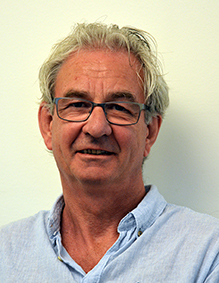
Stener Ekern Stener Ekern is professor in anthropology at the Norwegian Centre for Human Rights (NCHR) at the Faculty of Law at the University of Oslo. He has done fieldwork in Nicaragua (1984) and Guatemala (2000 and ongoing) with a thematic focus on indigenous peoples, human rights and legal pluralism. Additionally, he has worked with human rights and world heritage and transitional justice. At the NCHR he is responsible for several master courses in human rights and has also elaborated a course in human rights and world heritage in cooperation with ICOMOS Norway. Before becoming a university researcher in 1997, he worked as a programme officer in Norwegian development cooperation.
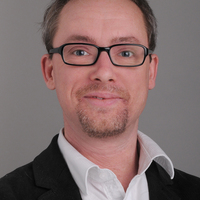
Peter Bille Larsen Peter Bille Larsen is a Danish anthropologist who works on conservation and social justice at both local and global levels. He is currently associate researcher at The Environmental Governance and Territorial Development Institute (GEDT) of the University of Geneva, and also works as a free-lance consultant. He has collaborated with UNESCO, the Advisory Bodies to the World Heritage Convention as well as academic partners to strengthen analysis and policy discussions on human rights, development and heritage. Recent books include Post-frontier resource governance (Palgrave, 2015), The Anthropology of Conservation NGOs (Palgrave 2018), World Heritage and Human Rights (Routledge, 2018) and World Heritage and Sustainable Development (Routledge, 2018).
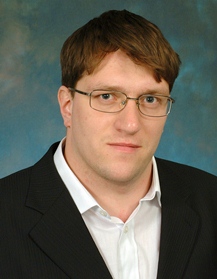
Aleksei Kelli Aleksei Kelli is Professor of Intellectual Property Law (University of Tartu, Estonia). He is Chair of Legal Committee of CLARIN ERIC (Common Language Resources and Technology Infrastructure). Dr Kelli acted as the Head of an Expert Group on the Codification of the Intellectual Property Law of Estonia. He has been a Member of Team of Specialists on Intellectual Property in the United Nations Economic Commission for Europe. He has taken part in several EU and Estonian R&D projects as a leading IP, innovation, and data protection expert. Dr. Kelli has published numerous works on intellectual property, innovation, personal data protection, knowledge transfer, and related issues.
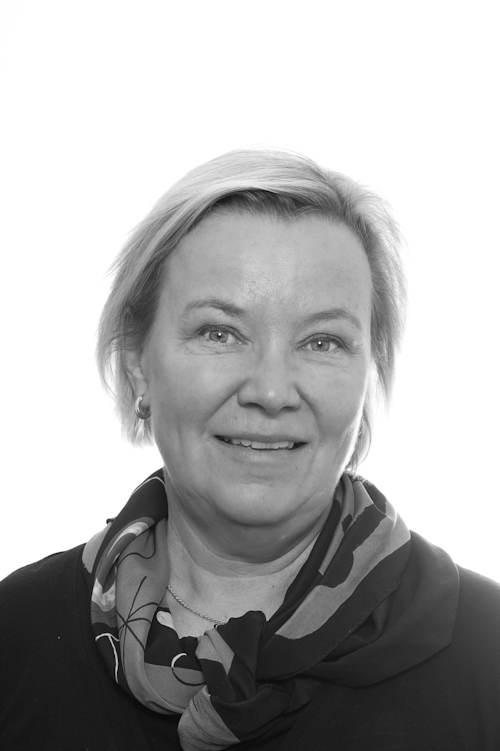
Bente Mathisen Bente Mathisen is a Norwegian chartered architect MNAL who works as an advisor and manager for cultural heritage at Statsbygg. She has been director for the Heritage Management Office of the World Heritage (WH) City of Bergen Norway, Director for Cidade Velha Republic of Cape Verde, and partner at the Architect group CUBUS, Bergen Norway. She is a board member of Foundation Bryggen, World Heritage site. She coordinated for 10 years the Eastern African City-to-City network between the WH cities of Bergen Lamu, Zanzibar and Ilha. She was the project leader of a restoration and capacity building project for the WH cities of Bergen, Norway, and Ilha, Mozambique. She has been a Board member of ICOMOS Norway, is member of ICORP and currently the focal point of the Our Common Dignity Initiative.
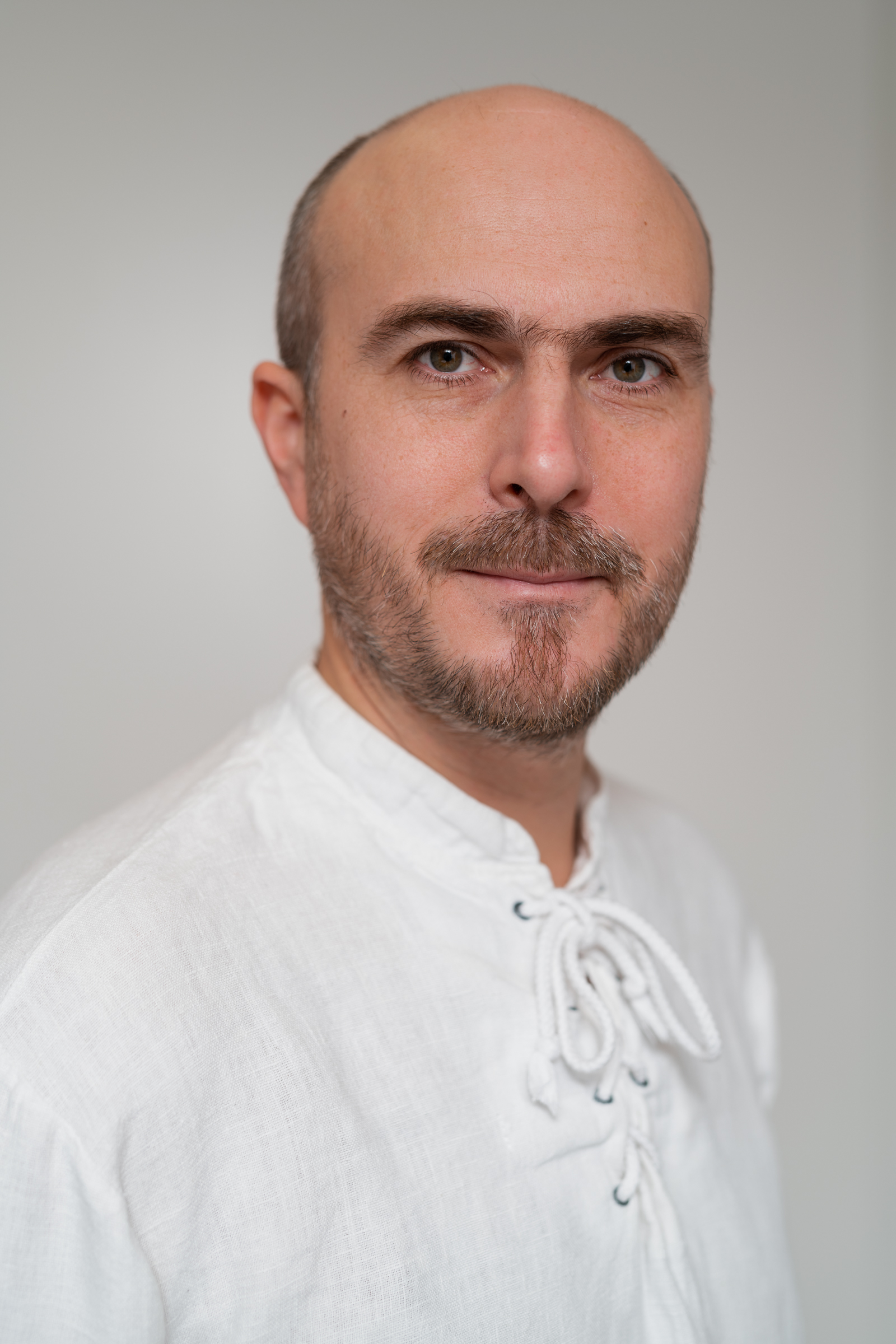
Oliver Loode Oliver Loode is Managing Director of URALIC Centre for Indigenous Peoples NGO (Põlisrahvaste Arengu Keskus MTÜ) where he coordinates the programme of Finno-Ugric Capitals of Culture and SANA2019: Civil Society Network for Preservation and Revitalization of Indigenous Languages. Between 2014-2016 he served as Expert Member of the United Nations Permanent Forum on Indigenous Issues (UNPFII), including as Vice-Chair and Rapporteur. He has also worked as Head of Cultural Programmes at Minority Rights Group International. Before entering the field of indigenous peoples’ and minority rights, Oliver was a tourism development and place marketing consultant.
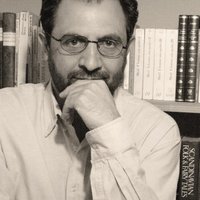
Daniel Scarfo Daniel Scarfo is a Cultural and Educational Advisor at the Ministry of Justice and Human Rights in Argentina (Justo Vos Programme). He is a sociologist (University of Buenos Aires) and a Ph.D. in Spanish and Portuguese (Yale University). He taught at different universities in Argentina (University of Buenos Aires, UTDT, FLACSO, UB, UNC), Canada (University of British Columbia) and U.S.A. (Yale University) and conducted research at the University of Buenos Aires, FLACSO and CONICET (Argentina). He was also the Director of the Sarmiento Museum and the Director of Institutional Programmes at the MAT (Tigre Art Museum), in Argentina. Research topics: languages, societies and cultures; ethics, education and justice.
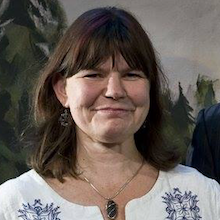
Riin Alatalu Riin Alatalu is an associate professor of heritage conservation and restoration in Estonian Academy of Arts and the head teacher of restoration in Hiiumaa Vocational School. She has a PhD in heritage conservation and restoration. Alatalu has worked in National Heritage Board, Tallinn Culture and Heritage Department and Estonian Ministry of Culture on leading positions taking care of supervision and promotion of heritage and she has been in charge of important international programs. She is the member of the Board of ICOMOS International and president of ICOMOS Estonia, member of Rights Based Approach working group, CIVVIH and Estonian Heritage Advisory Panel, former vice-president of ICLAFI.
.jpg)
Ave Paulus Ave Paulus is the specialist for cultural heritage issues in the Environmental Board of Estonia, Council member of Virumaa Museums, Spokesperson of the intangible heritage of the Folk Culture Centre, Board member of Lahemaa and Alutaguse National Park Cooperation Councils. She is a member of ICOMOS International Scientific Committee on Cultural Landscapes, Rights-Based Approach working group, Climate Change working group. She has master`s degrees from Estonian Academy of Arts (heritage conservation and restoration) and Tartu University (semiotics and theory of culture). Her doctoral studies are related to the topic of community-based heritage protection. She has coordinated cooperation between heritage communities, state and universities in more than 30 development projects concerning heritage management.
Gráinne Shaffrey Gráinne Shaffrey is a Principal of Shaffrey Architects and current President of ICOMOS Ireland. Her work is concerned with the integration of new and existing urban fabric and public spaces which facilitate social and physical diversity. Research and publication has formed an important element of practice. Recent projects include the 14 Henrietta Street Museum which tells a bigger storey of home, housing, class and the city from the 18th to the late 20th Century through the prism of physical traces within this important historic building and the rich oral histories gathered through a unique collaboration with former residents. With ICOMOS Ireland, Gráinne has been working on a project gathering case studies which embrace the spirit and principles enshrined in the ‘Faro’ Convention on the Value of Heritage to Society.
Environmental awareness: the organisers hold no-plastic and minimum trash policy (no advertising papers, bags, handouts; no plastic bottles or one-time dishes etc), there is a possibility to have only vegan meals, environmentally-friendly transport solutions are preferred.
Organisers of the Workshops and Conference:
Ave Paulus, ICOMOS International Working Group “Our Common Dignity”, Environmental Board of Estonia Riin Alatalu, Estonian Academy of Arts, ICOMOS International, ICOMOS Estonia
Bente Mathisen, ICOMOS International Working Group “Our Common Dignity”, ICOMOS Norway Stener Ekern The Norwegian Centre of Human Rights, University of Oslo
Additional information: Ave Paulus, +37253327893, ave.paulus@keskkonnaamet.ee





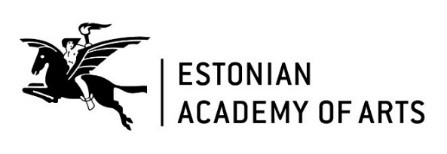
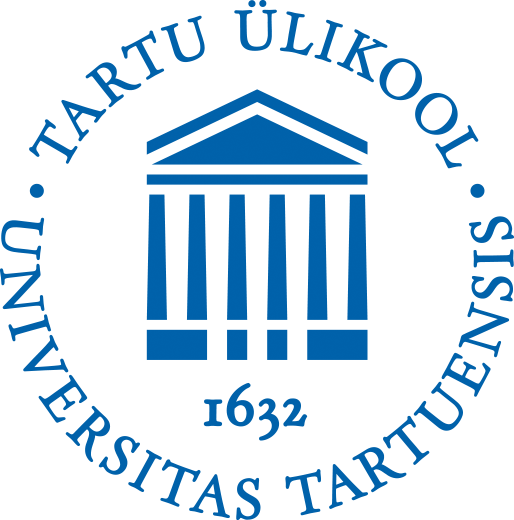

Video of the workshop
Photos of the workshop – https://www.facebook.com/media/set/?set=a.2358309150875375&type=3
More reading:
Riin Alatalu . Pärand ja inimõigused Sirp
Indrek Tart . Tallinna vanalinna elanikke peab hoidam kümne küünega. EPL
Vootele Hansen Pärand , lood ja inimese õigus. KesKus
